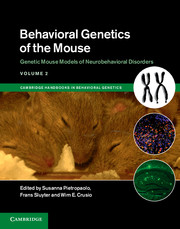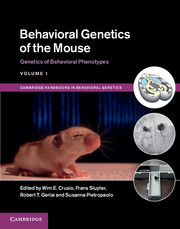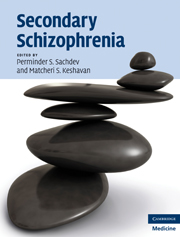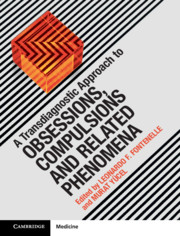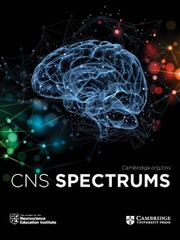Behavioral Genetics of the Mouse
The second volume of Behavioral Genetics of the Mouse provides a comprehensive overview of the major genetically modified mouse lines used to model human neurobehavioral disorders: from disorders of perception, of autonomous and motor functions to social and cognitive syndromes, drug abuse and dependence as well as neurodegenerative pathologies. Mouse models obtained with different types of genetic manipulations (i.e. transgenic, knockout/in mice) are described in their pathological phenotypes, with a special emphasis on behavioral abnormalities. The major results obtained with many of the existing models are discussed in depth highlighting their strengths and limitations. A lasting reference, the thorough reviews offer an easy entrance into the extensive literature in this field, and will prove invaluable to students and specialists alike.
- Presents the major genetically modified mouse lines used to model human neurobehavioral disorders
- Includes the critical review of the validity of many of the existing genetic mouse models of neuropathologies
- Each chapter reviews current knowledge about one specific type of disorder, pointing the reader towards the most important studies in the extensive literature
Product details
October 2014Hardback
9781107044456
530 pages
282 × 224 × 25 mm
1.53kg
15 b/w illus. 31 tables
Available
Table of Contents
- List of contributors
- Part I. Introduction to Genetic Mouse Models of Neurobehavioral Disorders:
- 1. Introduction Frans Sluyter and Wim E. Crusio
- 2. Developing mouse models of neurobehavioral disorders: when is a model a good model? F. Josef van der Staay, Saskia Arndt and Rebecca E. Nordquist
- Part II. Perception Disorders:
- 3. Pain disorders Odd-Geir Berge
- 4. Disorders of the visual system Stewart Thompson and Alisdair R. Philp
- Part III. Autonomous and Motor Disorders:
- 5. Obesity and anorexia Gertjan van Dijk and Martien J. H. Kas
- 6. Sleep disorders Glenda Lassi and Valter Tucci
- 7. Cerebellar disorders Robert Lalonde and Catherine Strazielle
- 8. Motor disorders David Gordon and Kevin Talbot
- 9. Epilepsy Ortrud K. Steinlein
- Part IV. Social Dysfunction and Mental Retardation:
- 10. Pathological aggression Frans Sluyter, Aki Takahashi and Stephen C. Maxson
- 11. Disorders of sex Ashlyn Swift-Gallant and Douglas Ashley Monks
- 12. Autism Valerie J. Bolivar
- 13. Rett syndrome Laura Ricceri, Bianca De Filippis and Giovanni Laviola
- 14. Fragile X syndrome Susanna Pietropaolo and E. Subashi
- 15. Attention-deficit hyperactivity disorder Tatyana D. Sotnikova and Raul R. Gainetdinov
- 16. Obsessive-compulsive disorder and Gilles de la Tourette's syndrome Nancy S. Woehrle and Stephanie C. Dulawa
- 17. Schizophrenia Sofya Abazyan and Mikhail V. Pletnikov
- 18. Down syndrome Mara Dierssen
- 19. Prader–Willi and Angelmann syndromes Emily Y. Smith and James L. Resnick
- 20. Williams syndrome Lucy R. Osborne and Zhengping Jia
- Part V. Anxiety and Mood Disorders:
- 21. Anxiety disorders Guy Griebel and Sandra Beeské
- 22. Depression Christopher R. Pryce and Federica Klaus
- 23. Bipolar disorder Nirit Kara and Haim Einat
- Part VI. Substance Dependence and Abuse:
- 24. Alcohol use disorders John C. Crabbe
- 25. Drug abuse: nicotine Rebecca C. Steiner and Marina R. Picciotto
- 26. Cannabis abuse and dependence Tim Karl and Jonathon C. Arnold
- 27. Drug abuse: amphetamines Tamara J. Phillips, Emily C. Eastwood and John H. Harkness
- 28. Cocaine-related disorders F. Scott Hall and Ichiro Sora
- 29. Opioids-related disorders Angelo Contarino
- Part VII. Neurodegenerative Disorders:
- 30. Alzheimer's disease Christopher Janus and David Borchelt
- 31. Parkinson's disease Iddo Magen and Marie-Françoise Chesselet
- 32. Huntington's disease Yoon H. Cho and Susanna Pietropaolo
- Index.

